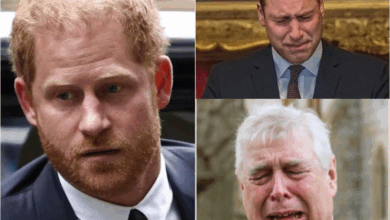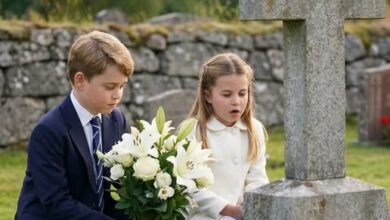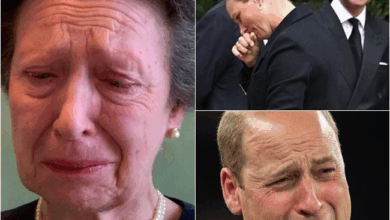Harry Must Be KICKED OUT Of Duchess Katharine’s Funeral Despite HUGE MOMENT With King Charles

Harry Must Be KICKED OUT Of Duchess Katharine’s Funeral Despite HUGE MOMENT With King Charles
Hello dear viewers, and welcome once again to our channel, where today’s reflection carries with it the weight of history, memory, and quiet reverence. We gather not for jubilation or spectacle, but to honor the passing of Her Royal Highness, the Duchess of Kent, a woman whose long life bridged tradition and individuality, ceremony and simplicity, faith and duty.
The Duchess passed away peacefully at Kensington Palace on September 4th, 2025, surrounded by her family. She was 92 years old. With her death, the royal household bids farewell to a figure whose influence was never measured in pomp or pageantry, but in the quiet ways she lived her life — placing service, humility, and faith at the very center of her identity.
Much has already been said, and inevitably, much will be speculated — about who will or will not attend, about estranged relatives across the Atlantic, about the optics of grief within the House of Windsor. But here, it is vital to pause. Catherine’s farewell should not be reduced to rumor or to the noise of absence. It deserves to be remembered in the stillness and dignity that defined her years, and in the authenticity with which she chose to live her role.

This departure from custom speaks to the courage of her choices. When the Duchess converted to Catholicism in 1994, she quietly reshaped the monarchy’s relationship with faith. At the time, it was seen as extraordinary: she became the first senior royal to embrace Catholicism since the 17th century. Yet Queen Elizabeth II respected her decision, and Catherine carried on with grace, balancing personal conviction with loyalty to her family.
Her path was not one of grandeur, but of service in simplicity. After withdrawing from full-time royal life in the 1990s, she became known not for her tiaras but for her teaching. In schools in Hull, she introduced children to the power of music — never announcing that their patient, gentle teacher was in fact a Duchess. She deliberately stepped away from the style of “Her Royal Highness” and instead lived as Mrs. Kent, a title that reflected her humility and her quiet independence.
The tributes arriving in recent days reflect both the public and private sides of her life. The Prince and Princess of Wales, appearing in black attire at separate engagements, made subtle but meaningful gestures of mourning, signaling solidarity with the Duke of Kent and his family. King Charles and Queen Camilla, too, will lead the family at her funeral, while members of the household will wear black armbands throughout the mourning period. Even Prince Harry, though far removed from royal duties, is understood to have sent private condolences, honoring the Duchess’s bond with his late mother, Diana.
For all the speculation, the essence of Catherine’s legacy is found elsewhere: in her faith, in her music, in her refusal to seek attention for its own sake. She showed that royalty could be lived not only in the spotlight, but in classrooms, in quiet acts of mentorship, and in the steadfast choice to follow one’s conscience.
As Britain prepares to mark her funeral, the world will see not only the farewell of a duchess, but a landmark moment in royal history. For the first time, Westminster Cathedral will host the final rites of a royal family member, underscoring how Catherine’s life — and her choices — reshaped the narrative of what it means to be royal.
Her death invites us to reflect on the paradox of monarchy: a centuries-old institution sustained not only by spectacle, but also by the human lives within it. Catherine will be remembered as a royal who redefined service, not through grandeur, but through authenticity. Her quiet legacy reminds us that strength can be found in humility, faith can triumph over protocol, and individuality can exist even in the heart of tradition.
She leaves behind not only sorrow, but inspiration. A woman who chose stillness over noise, conviction over conformity, and compassion over recognition. And in that, the Duchess of Kent ensures that her story will not fade — but continue to resonate, long after the mourning bells have stopped ringing.





